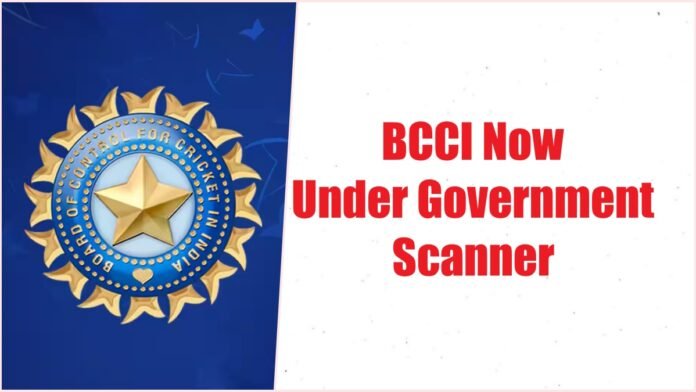
Key Highlights
- Centre to table National Sports Administration Bill in Parliament on Wednesday, aiming to ensure transparency, accountability, and good governance in Indian sports associations.
- BCCI India’s powerful cricket board will be brought under the bill’s scope, ending decades of limited government oversight.
- Key reforms include the formation of a National Sports Tribunal, player-centric regulations, institutional monitoring, and stricter rules for sports administration.
New Delhi: In a landmark move to boost transparency and accountability in Indian sports, the central government will introduce the National Sports Administration Bill in Parliament on Wednesday. The proposed legislation aims to modernize and regulate all sports agencies including for the first time the BCCI (Board of Control for Cricket in India), which has so far enjoyed considerable autonomy.
What Does the Bill Propose?
1. BCCI and All Federations Under Its Ambit:
Even though the BCCI does not depend on government funding, it will now require recognition from the newly proposed National Sports Board (NSB). Like other national federations, the BCCI must comply with regulations concerning governance, fair player selection, timely elections, and transparency. Importantly, the BCCI retains administrative independence but disputes will now be addressed by a new, independent National Sports Tribunal.
2. Formation of National Sports Tribunal:
A first-of-its-kind tribunal will quickly resolve disputes between players, selection bodies, and election issues within federations, helping to clear the backlog of over 350 court cases.
3. Government to Monitor, Not Micromanage:
While the government will set standards and provide oversight, it will not interfere directly with day-to-day operations. The NSB will provide institutional guidance, not executive control.
4. New Age Limit for Administrators:
Officials up to 75 years of age (unless objected to by the relevant international sporting body) will be eligible for federation elections.
5. Player-First Approach:
The bill calls for transparent selection processes, prompt grievance redressal, and prioritizes player safety and welfare.
6. New National Sports Board Structure:
The NSB will comprise government-nominated officials, reputed sports administrators, and medal-winning athletes to oversee compliance and development within federations.
Why is the BCCI Now Included?
With cricket’s T20 format debuting at the 2028 Los Angeles Olympics, BCCI has officially joined the Olympic Movement. This link justifies and necessitates its inclusion within the national sports governance framework for unified oversight.
Expected Impacts
- Administrative Discipline: Ensures federations follow best practices for governance, elections, and finances.
- Faster Dispute Resolution: Reduces the growing number of court cases related to sports federations.
- Greater Transparency: Mandates publicly accessible reports and information regarding selection, functioning, and player support.
- Empowering Players: Focuses on athlete welfare, safeguarding, and unbiased selection processes.
What Happens Next?
If the bill is passed:
- The NSB and National Sports Tribunal will be constituted.
- All federations including the BCCI will need to seek recognition under this new regime.
- New rules for age, accountability, and player-first requirements will apply uniformly.
- Players and officials can expect faster, fairer mechanisms for grievance redressal and administrative disputes.
The National Sports Administration Bill could mark a turning point in Indian sports, creating a level playing field for all federations cricket included and pushing for a future where transparency, accountability, and athlete welfare are at the forefront of sports administration.





















































